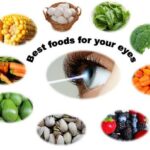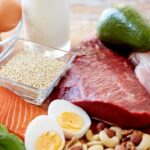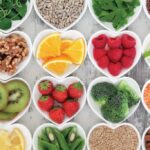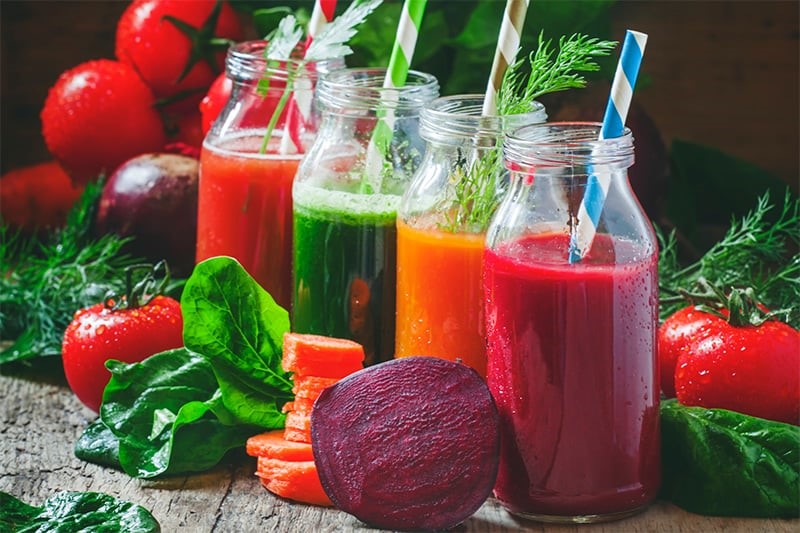 " title="8 Foods to eat to help detox your liver: Skip these 6 foods that cause damage
" decoding="async" srcset="https://www.medrot.com/wp-content/uploads/2022/02/Foods-to-eat.jpg 800w, https://www.medrot.com/wp-content/uploads/2022/02/Foods-to-eat-300x200.jpg 300w, https://www.medrot.com/wp-content/uploads/2022/02/Foods-to-eat-768x512.jpg 768w" sizes="(max-width: 800px) 100vw, 800px" />
" title="8 Foods to eat to help detox your liver: Skip these 6 foods that cause damage
" decoding="async" srcset="https://www.medrot.com/wp-content/uploads/2022/02/Foods-to-eat.jpg 800w, https://www.medrot.com/wp-content/uploads/2022/02/Foods-to-eat-300x200.jpg 300w, https://www.medrot.com/wp-content/uploads/2022/02/Foods-to-eat-768x512.jpg 768w" sizes="(max-width: 800px) 100vw, 800px" />The liver is an extremely powerful organ. It is responsible for a wide range of functions, such as the synthesis of protein, triglycerides, and bile, as well as the storage of vitamins, minerals, and even carbohydrates. It also breaks down poisons such as alcohol, medicines, and metabolic wastes. It’s critical to keep your liver in great condition if you want to stay healthy. The liver is a vital organ that performs numerous functions that allow the host to survive.
The liver is a detoxification organ that removes toxins from the body. It cures, degrades, and aids in the removal of toxins from the body. However, if the liver is diseased, obese, or damaged, all of these functions may suffer. Hence, to maintain your liver healthy we have enlisted foods that will help you to detoxify your liver and food that needs to be avoided to retain or maintain a healthy life:
8 Foods to eat to help detox your liver:-
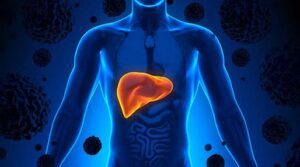
Table of Contents
Turmeric
Turmeric’s curcumin is a potent liver-friendly plant. Almost every meal in India has had a considerable bit of turmeric in it for years, if not centuries. Curcumin compounds are marketed in pharmacies in developed nations where turmeric use is less common.
Beetroot
Beetroots include nitrates and antioxidants termed betalains, which have been demonstrated in studies to promote cardiovascular health and prevent oxidative inflammation and pain. You could either have a smoothie of the beetroots or have them sliced into pieces so that you would reap the benefits of their fibres.
Coffee
Even though we’ve all read that drinking excessive coffee is harmful to health, moderate consumption of this commonly consumed drink can benefit your health, notably lowering your risk of liver disease. Coffee lovers are much less prone to developing liver cirrhosis than non-coffee users, according to multiple studies1. Coffee may also help the liver by controlling liver enzymes, which are a typical indicator of the organ’s health.
Cruciferous Vegetables
The cruciferous vegetable family includes cabbage, broccoli, cauliflower, and Brussels sprouts. These pantry staples provide numerous health advantages, including liver detoxification and enzyme balance. They also include indole2, a chemical that has been demonstrated to aid in the treatment or prevention of fatty liver disease.
Spirulina
Spirulina is a type of algae that contains a lot of proteins, vitamins, minerals, and antioxidants. As per studies, spirulina may effectively safeguard liver cells from hepatitis-related harm. Consult your physician before consuming spirulina as a supplement. Spirulina is available in pill form, as well as powder and flakes. Before including spirulina into your diet, consult your doctor if you already have any health concerns or are taking any medications.
Tomatoes
According to a study, lycopene-rich foods may be beneficial in the treatment of certain liver diseases. Lycopene is abundant in tomatoes and tomato products. The pigment lycopene is responsible for the vibrant colour of red fruits and veggies.
Eating lycopene-rich foods may also reduce the risk of cancer and cardiovascular disease.
Green Leafy Vegetables
Leafy greens are a terrific way to help your body’s natural detoxification process, so include them in as many meals as possible! Spinach, kale, moringa leaf, alfalfa leaf, and parsley are among the top leafy greens on the list. Minerals and vitamins abound in leafy greens, notably iron, calcium, potassium, and magnesium. They’re also high in fibre, making them slower to absorb and beneficial to bowel health. Including leafy green vegetables in your meals can be as simple as adding a bunch of greens to your next smoothie, so the next time you’re combining up your breakfast, don’t miss to include some greens.
Garlic
Garlic is high in sulphur, which stimulates liver enzymes that aid in the removal of toxins. Garlic also has a lot of selenium. Selenium is an important vitamin that has been demonstrated to improve our livers’ inherent antioxidant enzyme levels. Topping up with selenium provides our livers with much more weapons in the fight versus oxidative stress destruction.
6 foods to skip to avoid liver damage:-
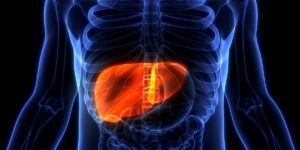
Alcohol
You shouldn’t drink a lot of alcohol as it is way too harmful to your health. Each human’s body reacts to liquor differently, or what might be excessive for one individual may have no effect on another. Cirrhosis and other liver diseases can be caused by an excessive amount of inflammatory response. It is best to drink in reasonable quantities or just don’t drink at all.
White bread
When it pertains to fatty liver disease, industrialized, refined carbohydrates like white bread usually include sweeteners and are practically comparable to sugar in the body. White bread is created from refined wheat, which has had almost all of its nutritious value stripped away, leaving only the starchy result. The industrial refining of starches produces a bread that is softer and more delicious, but it is also considerably less healthful.
Smoking
Smoking causes not just lung cancer but also liver cancer. The liver is harmed by smoke ingested as a result of tobacco usage. Cigarette smoke generates a lot of oxidative stress, which puts a lot of pressure on the liver to cleanse the blood. This causes the body to emit dangerous compounds, which could also lead to liver cancer.
Fried foods
The way foods are prepared can have a big impact on how the contents are processed by your body. Trans fats are commonly found in deep-fried foods, and they can raise total cholesterol and LDL, as well as lead to an excess of fat in the liver.
Less Water Consumption
Water aids in the detoxification of the body. Because our systems are made up of 75% water, dehydration has an impact on us. The liver requires plenty of fluids to function properly and drinking less than the recommended quantity can cause liver disorders. Dehydration increases the likelihood of sickness, while water intake assists the liver to station reserves.
Ice cream
Ice cream is a dairy product high in added sugars and trans fats, both of which lead to fatty liver disease and the risk factors that come with it. Bodyweight, metabolic disorders, heart disease, and fatty liver disease are all linked to excessive saturated fat consumption. Insulin functioning is harmed by saturated fat, which contributes to insulin resistance and diabetes.


